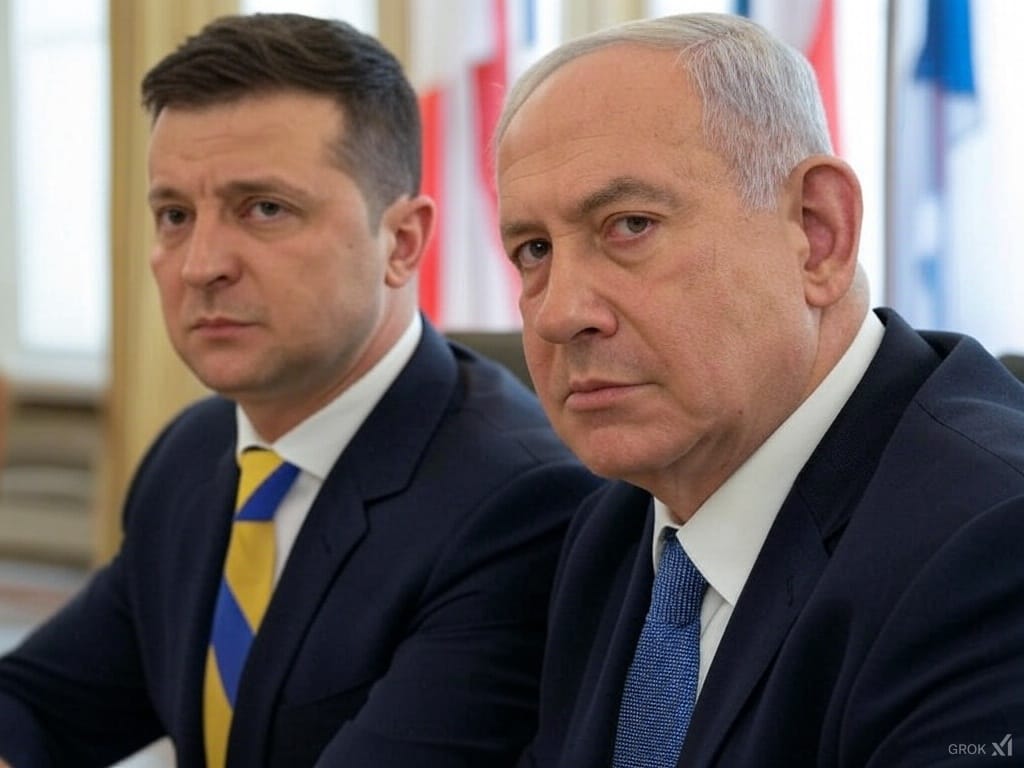The Contrasting Leadership of Zelensky and Netanyahu: A Tale of Two Leaders

In times of war and crisis, leadership is tested in the most brutal ways. Some leaders rise to the occasion, while others falter. To understand the stark contrast in leadership between two figures on the global stage, let’s compare Volodymyr Zelensky of Ukraine and Benjamin Netanyahu of Israel.
Global Perception and Support
The world rallied behind Zelensky as Ukraine resisted Russian aggression. The U.S. and European nations poured billions in military aid into Ukraine, ensuring its defense capabilities remained intact. His leadership was seen as courageous, though at times criticized for its over-reliance on Western backing.
In contrast, Netanyahu faced global opposition. The same Western powers that armed Ukraine hesitated or outright refused to supply Israel with critical military support, particularly as the conflict with Hamas and Hezbollah escalated. This disparity in international response highlights the differing geopolitical dynamics at play.
Public Sentiment
Despite the Iranian regime’s close alliance with Putin, the Iranian people overwhelmingly supported Ukraine and stood with the free world against Russian aggression. Many Iranians saw Zelensky’s resistance as a symbol of defiance against authoritarianism—something they deeply resonated with.
In contrast, during the October 7th attacks and the subsequent war in Gaza, Iranian public sentiment was divided. Unlike many European cities where antisemitism became visible in protests, many Iranians openly sympathized with Israel and its people. This reaction was unique, as it defied the expectations set by the Iranian regime’s official stance. While Netanyahu remains a controversial figure globally, he found unexpected support from a segment of the Iranian population that saw the October 7th attacks as unjustifiable.
Military Boldness
Despite receiving advanced long-range weapons, Zelensky refrained from using them inside Russian territory, perhaps due to strategic caution or pressure from Western allies. Netanyahu, on the other hand, acted decisively and with little regard for external threats. He launched relentless strikes against Hezbollah and Hamas, even in defiance of pressure from the U.S. and European nations.
Political Standing with the U.S.
Zelensky, despite his efforts, found himself in a weakened position when engaging with U.S. leadership. His visit to the White House was marked by tense exchanges, and during the Trump administration, he was openly scolded. Netanyahu, by contrast, strengthened his ties with Trump, leveraging his political acumen to solidify U.S.-Israel relations.
The Verdict
As of today, Zelensky finds himself in an increasingly precarious position. Western support, while still present, is wavering, and Ukraine’s war effort faces mounting challenges. Netanyahu, despite international criticism, remains in a position of strength, unafraid to act on his country’s security concerns with or without global approval.
This is where the old saying applies: Not every goat is fit to thresh the grain. Leadership in war requires a unique mix of boldness, strategy, and resilience. Whether one agrees or disagrees with their methods, there is no denying that the paths taken by Zelensky and Netanyahu have led to vastly different outcomes.
That said, while I may critique leadership styles, I personally oppose Russian aggression and firmly support Ukraine’s territorial integrity. The world should not allow borders to be redrawn by force, regardless of who stands at the helm.



